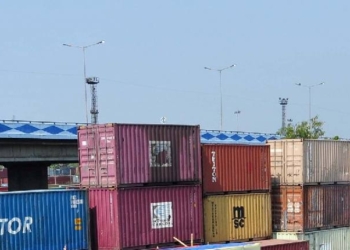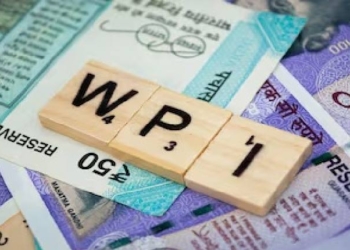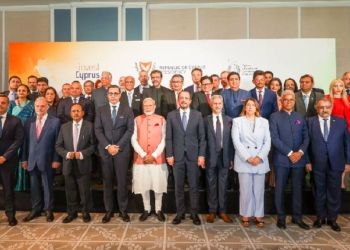Chennai: With economic experts expecting the Reserve Bank of India’s (RBI) Monetary Policy Committee (MPC) to increase the repo rate further by 25 basis points (bps), whether it will be unanimous or not will have to be seen.
The MPC’s first meeting of FY24 is being held between Monday to Thursday. The decision on the repo rate hike will be announced on Thursday.
At the recent MPC meetings, the rate hike decisions were not unanimous with two external members — Dr. Ashima Goyal, Emeritus Professor, Indira Gandhi Institute of Development Research, Mumbai; and Prof. Jayanth R. Varma, Professor, Indian Institute of Management, Ahmedabad, voting against the hikes.
For instance, at the February 6-8 MPC meeting, Goyal and Varma had voted against the move to hike the repo rate by 25 bps to 6.50 per cent.
On the other hand, Dr. Shashanka Bhide, Honorary Senior Advisor, National Council of Applied Economic Research, Delhi; Dr. Rajiv Ranjan, Executive Director, RBI; Dr. Michael Debabrata Patra, Deputy Governor in charge of monetary policy; and RBI Governor Shaktikanta Das voted for the rate hike.
The resolution was passed by a majority of 4:2.
Commenting on the February 6-8 MPC meeting, Emkay Global Financial Services in a report said the minutes depicted a cautious and data dependent tone with most members anchoring their arguments to the risk of sustained high inflation and their second-round effects.
“The divergence in views became even more acute this time. The internal members of the RBI MPC were significantly hawkish, while Dr. Bhide seemed cautiously neutral. Prof. Varma and Prof. Goyal sounded dovish, arguing that there is a likely case of excessive frontloading of hikes, overshooting what is needed to achieve price stability, and further tightening is not desirable as one has to account for policy transmission lags,” Emkay Global said.
So, if the MPC decides on a rate hike, then it may not be unanimous.
Meanwhile, differing views are being expressed by experts on the interest rate with one saying the MPC may hike the repo rate by 25 bps and hit the pause button. The other view is that the MPC may hit the pause button on the rate hike for now.
However, the latter is slightly remote as the inflation continues to be sticky — the rate hikes are made to control the inflation.
Further the RBI had recently written to the central government on the steps it would take to control inflation/price rise.
“The RBI’s decision in April is likely to be influenced by the unexpectedly high consumer price index (CPI) inflation numbers recorded in the last two months,” said CARE Ratings in a report.
“The January and February spike in CPI inflation, combined with core inflation remaining above 6 per cent, may push the policy outcome in favour of one more rate hike. Moreover, the latest inflationary expectations data does not suggest a significant relief,” the report notes.
The credit rating agency expects the RBI to hike the repo rate by 25 bps to 6.75 per cent. With the real rate turning positive and tight liquidity conditions, CARE Ratings also expect a change of stance from ‘withdrawal of accommodation’ to neutral.
According to Lakshmi Iyer, CEO-Investment & Strategy Kotak Investment Advisors Limited, the CPI remains above the 6 per cent threshold, including core inflation which remains sticky. Though CPI is likely to trend lower in the coming months, the probability of a 25 bps rate hike in the upcoming MPC seems high.
“To hike or not to hike could be the most discussed agenda as the clamour for a pause seems to be only growing,” Iyer added.
Giving a different view, India’s largest commercial bank, the State Bank of India (SBI) expects the MPC to hit the pause button this time around.
“We expect the RBI to pause in April policya It has enough reasons to pause in April. There are concerns of a material slowdown in affordable housing loan market and financial stability concerns taking centre stage,” said SBI’s research report titled, “Prelude to MPC Meeting”.
Agreeing on the inflation concerns is justified the SBI report said the average core inflation is at 5.8 per cent over the last decade and it is almost unlikely that core inflation could decline materially to 5.5 per cent and below as post pandemic shifts in expenditure on health and education and the sticky component of transport inflation with fuel prices staying at elevated levels will act as the constraint.
By this logic, the RBI may then have to go for more rounds of rate hikes.
Churchil Bhatt, Executive Vice President & Debt Fund Manager, Kotak Mahindra Life Insurance Company, said that the MPC members are facing a catch-22 situation — a turbulent global economic landscape versus a healthy and reasonably insulated economy.
“We expect a pause in the April 23 MPC meeting with no change in stance. Forward guidance by the MPC, if any, may be open ended, leaving room for deft manoeuvrability depending on evolving circumstances in the global and domestic economy,” Bhatt said.
(IANS)












